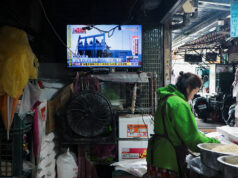HIV-infected workers forced to quit jobs, face discrimination due to lack of gov’t support
THE Philippines’ labor department maintains no records of anti-discrimination cases filed by workers infected with the Human Immunodeficiency Virus (HIV), New York-based Human Rights Watch (HRW) said in its latest report.
As a result, “there is little evidence that the government is adequately enforcing the laws to prevent and punish workplace discrimination” especially those against HIV-infected employees.
“The DOLE’s [Department of Labor and Employment] Bureau of Working Conditions, which monitors HIV in the workplace policy compliance, maintains no database on the number of complaints people living with HIV have filed with its office or other DOLE agencies, such as the National Conciliation and Mediation Board (NCMB), which tries to settle labor disputes before they escalate into litigation,” the group said in its report.
In their interviews with individuals living with HIV, the HRW found that “there is a lack of meaningful public education in the Philippines about HIV transmission and safer sex practices.”
“Workplace discrimination was ranked as among the most serious concern,” the organization said, citing its interviews with nongovernmental organizations and 33 people with HIV. “Many said they had no information about how to seek redress.”
With these findings, the group urged government to “create a major education and awareness campaign through various media to inform people living with HIV of their rights concerning workplace discrimination.”
The campaign “should direct concerned agencies to create and publish regularly updated databases of discrimination cases. And it should conduct an expanded public education campaign about HIV and address the wider issue of social stigmatization of people with HIV.”
“LGBT rights advocates say that this reflects the government’s longstanding failure to adequately address the HIV epidemic. For example, millions of Filipinos are not sufficiently educated about the role of condoms in preventing HIV transmission. Department of Health data indicates that only one out of five men who have sex with men have basic knowledge of HIV. Inadequate public education on HIV and the rights of people with HIV facilitates stigma and discrimination in the workplace,” the organization’s report said.
From “only four a day in 2010 to 31 a day as of November 2017; also, from just 117 cases 10 years ago, the total number of HIV cases as of November 2017 is 49,733,” the HRW said.
For its part, the government recently reported that “most new infections, up to 83%, occur among men or transgender women who have sex with men.”
HIV SUFFERERS ASKED TO QUIT, FACE JOB DISCRIMINATION
“Gus,” 21, was diagnosed with HIV in August 2016 while still a college student. After he graduated, he got a teaching job at a Catholic school in Pasay City. He initially did not disclose his HIV status, but later informed the school’s dean.
“I was asked to resign,” Gus said in an interview with HRW. “They wrote my resignation letter and asked me to sign it.” The dean told him that she wanted her teachers to be in good health. But what hurt Gus the most, he said, was when the dean told him he “might infect the students.”
That experience pushed Gus into depression, forcing him to say that he quit his job because the teaching load was just too much for him. He eventually found another teaching job at an international school teaching Tagalog. He had not yet disclosed his status to his new school, but he was confident it would be acceptable: “As long as I work hard, it shouldn’t be a problem to them.”
Meanwhile, “Marlon,” a twenty-three-year-old seafarer from Manila, learned he had HIV in December 2015. After his diagnosis, he enrolled in an HIV treatment program at a government hospital and continued applying for seafaring jobs. He was forthcoming about his HIV status, and the employment agency declined to hire him. “[Employment agencies] told me that the principal did not want to hire people with illnesses such as HIV,” Marlon said.
He applied for jobs through five other agencies for one year, but his applications were consistently rejected explicitly due to his HIV status. “I was denied each time because of my HIV status,” he said. “They would tell me that they’d call back, but no one ever did.” He eventually found Positibong Marino Philippines on Facebook and volunteered to help. “The manning [employment] agencies — that’s where the discrimination starts,” Marlon said.
“Andie,” 32, was working as a paralegal in a law firm in Iligan City in 2014 when HIV started to take a toll on his health. He grew thin and developed rashes on his arms and face, and on several occasions was absent from work. Andie said that his employer became upset with his absences and started telling people that he had HIV. “Each time a client asked [my employer] where I was, he would say I was in [nearby] Cagayan de Oro to deal with my AIDS situation,” Andie said. He said he was so humiliated he decided to quit his job.
Before leaving, he told his employer about the Philippine HIV/AIDS law and its prohibition against disclosing an employee’s HIV status. The lawyer responded: “Good luck in spreading your virus!” — Arjay L. Balinbin



